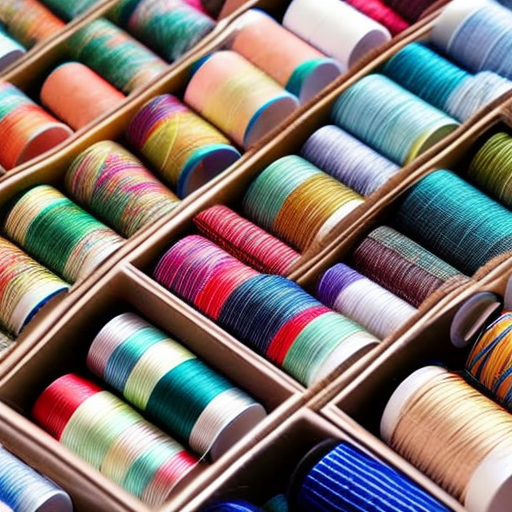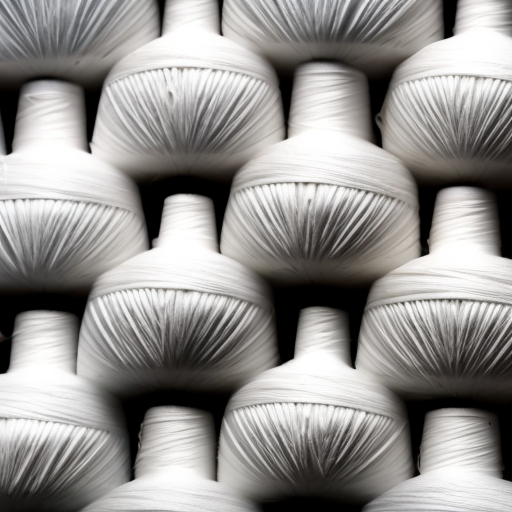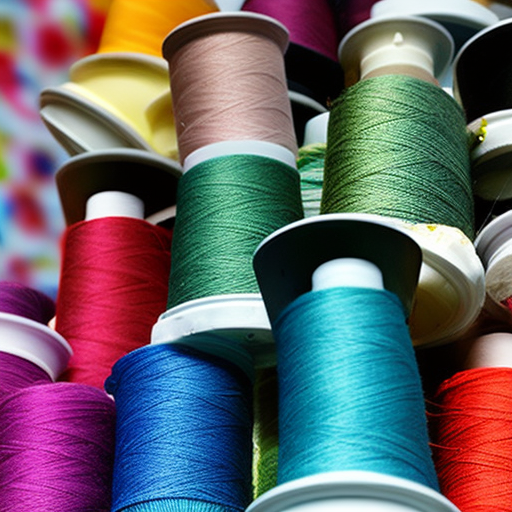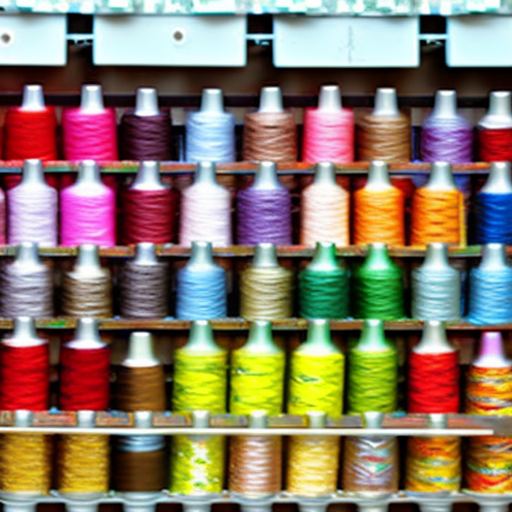
When it comes to sewing, the choice of thread can greatly impact both the aesthetic value and durability of your project. With so many types of threads available in the market, it can be overwhelming to select the most suitable one for your sewing needs. Here are some guidelines to help you choose the right sewing thread.
Cotton Thread
Cotton thread is a popular choice for many sewing projects due to its versatility. This type of thread is ideal for lightweight and medium-weight fabrics, such as linen, cotton, and rayon. It comes in various thicknesses, making it suitable for both hand and machine sewing. Cotton thread provides a strong and durable seam, while also allowing for some flexibility.
Polyester Thread
Polyester thread is known for its strength and durability. It is resistant to heat, chemicals, and sunlight, making it suitable for outdoor projects or items that undergo frequent washing. Polyester thread works well with both natural and synthetic fabrics and is often the go-to choice for sewing garments, bags, and upholstery.
Nylon Thread
Nylon thread is exceptionally strong and is commonly used for heavy-duty sewing projects. It is resistant to abrasion and can withstand high levels of tension without breaking. Nylon thread is suitable for sewing items like canvas, leather, and other heavy fabrics.
Specialty Threads
There are various specialty threads available that serve specific purposes. Metallic threads add a beautiful shimmer to decorative stitching, while invisible threads are ideal for hemming and appliqué. Embroidery thread, usually made of rayon or polyester, comes in a wide range of colors and is perfect for intricate embroidery designs.
Selecting the Right Thread Weight
Thread weight refers to the thickness of the thread. The general rule is to match the weight of the thread to the weight of the fabric. For lightweight fabrics, use a light thread (higher number), and for heavy fabrics, use a heavy thread (lower number). Choosing the right thread weight ensures that the seam doesn’t become too bulky or weak.
Final Thoughts
Choosing the appropriate sewing thread is crucial for achieving a successful sewing project. Whether you opt for cotton, polyester, nylon, or a specialty thread, ensure it complements the fabric and meets the desired durability requirements. Experimenting with different threads and exploring their uses can enhance your sewing skills and produce outstanding results.
Remember, your choice of thread will not only impact the functionality but also the overall appearance of your creation. So, take your time, consider the project’s requirements, and invest in high-quality threads to elevate your sewing projects to new heights!





Great tips, thanks!
Great advice – a comprehensive run-down of thread types and what specific materials they’re best used on – so helpful when deciding what to use! #knowledgeispower
Such helpful info! I understand the differences now!
This was extremely helpful!
Absolutely essential information for sewing pros and newbies alike!
This advice is priceless! So glad I found it!